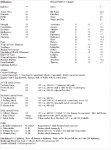I don't allow players to do MM lookups. If they are a summoner, I expect them to have the stats for their applicable creatures already printed out (I have the Monster cards from ToGC for that purpose).
I expect players to be looking up spells for themselves. I ain't got time for that crap.
I set a sense of urgency during encounters to keep things hopping, so combats already go fast.
The only time rules-lookups occur then, is when we're treading on new ground (ex. undead turning) and we need to look it up so we can do it right. A lot of times, that is anticipated, so I include the rules in my adventure (thanks SRD). If it is a rule we're not going to need again (swimming to cross a river that was unplanned), if we can't figure it out quick, I make up a rule (just like oD&D) and we move on. The players know I am making it up, and accept it as I'm trying to move the game forward, not screw them over.
I'd be wary of forbidding rules-lookups. I expect players to help by looking up rules for me. I don't necesarrily like it if they try to rules-lawyer me with it, but that often gets reigned in by ASKING them to lookup the rule, while I take care of another player.

